
"Tetris", this is a recently released streaming movie that lacks publicity and offensiveness. It is the so-called American Internet University. Because it was broadcast on the Apple platform, not even Netflix, so it was a little quiet. But because the movie itself is more interesting, it has gradually become one of Douban's recent hot spots.
A story about "Tetris", a video game that almost everyone on Earth knows.
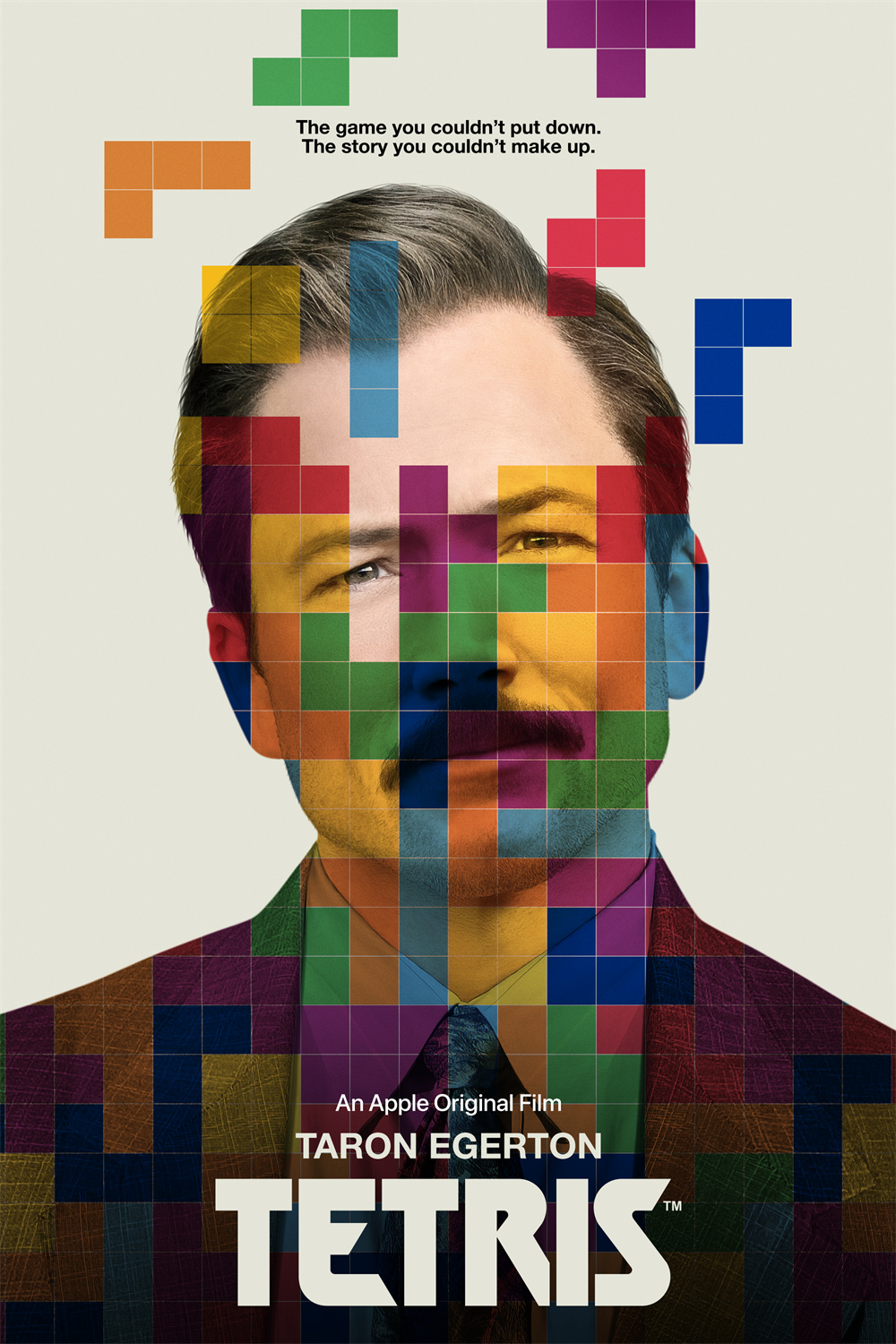
Tetris poster
If you have watched some documentaries produced by Netflix in recent years, similar to the archival documentary programs that were once popular on domestic TV stations, you will know that "reality is stranger than fiction" is not a rhetorical metaphor, but will actually happen. The story of this film is adapted from real events. It makes people feel that if there is no basis in reality, I am afraid that no such strange content can be made up by a living writer. The various cultural differences and character conflicts reflected in it, the understanding and challenges of the real social rules, and the application of business models will probably inspire many viewers.
Simply put, the game Tetris, like all modern video games, was created by programmers. If someone creates an original game, there will be subsequent legal issues related to copyright agreements, as well as commercial issues of how game sellers will distribute revenue in the future. The special thing about "Tetris" is that firstly, it is the product of the first generation of video games, and many laws, regulations and business rules have not yet been fully formed. The legal and commercial frameworks are also different and need to sit down and discuss carefully.
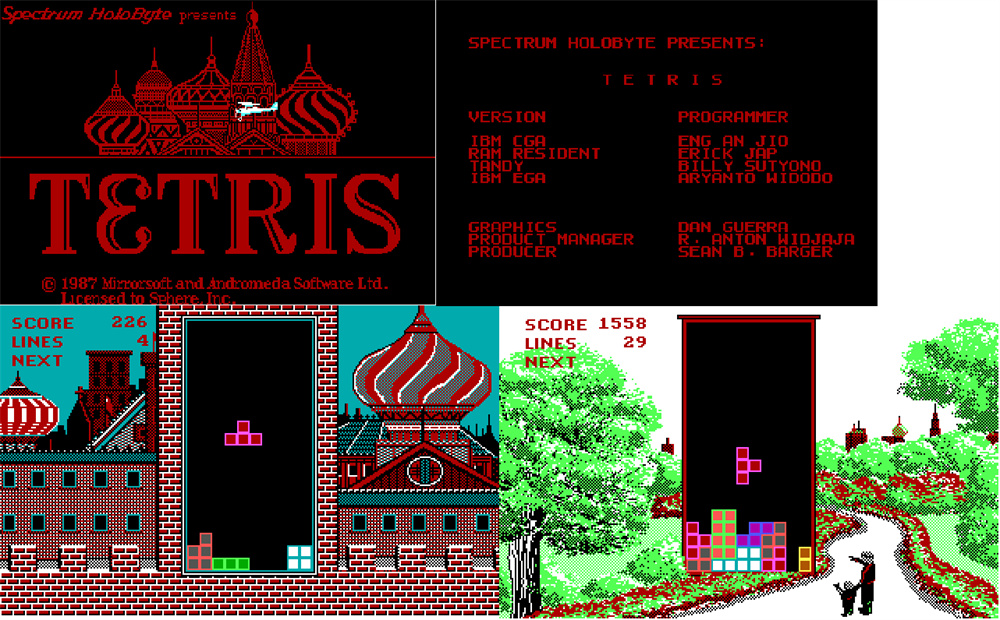
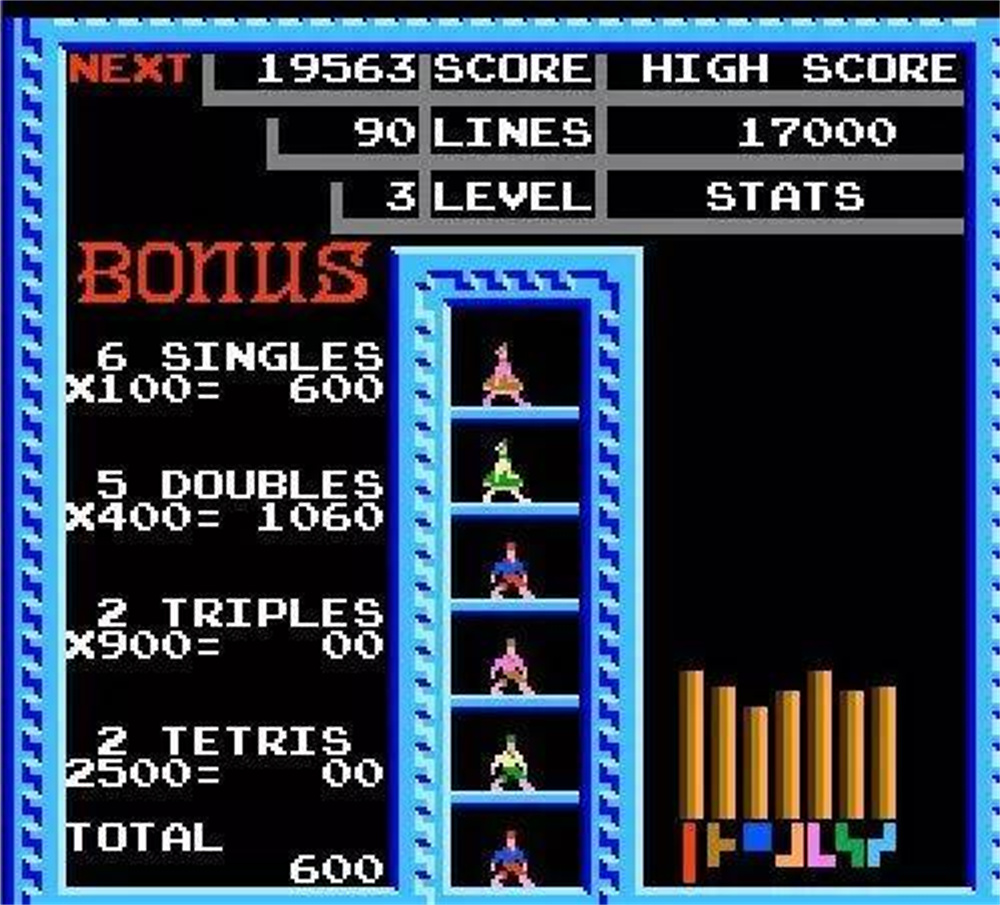
Some classic versions of the game "Tetris", there are dancing Russian villains in the Nintendo red and white machine.
That's right, the reason why "Tetris" has the word "Russia" is because its creator is Alexei Pajitnov, an early Soviet programmer. The author still remembers playing "Tetris" for the first time, it was on a Nintendo red and white machine when I was a child. Once the score reaches the standard, there will be a group of Russian villains dancing and celebrating, and the architectural picture when starting up also has a strong Russian style. At that time, the author was still quite puzzled, and finally the question of thirty years was answered in this film.
The era of "Tetris" was produced just a few years before the disintegration of the Soviet Union. Although the Cold War between the superpowers of the United States and the Soviet Union is coming to an end, they are not friendly countries after all, and business and interpersonal exchanges are not as convenient as imagined. This has created various complex practical problems.

In reality, the "Father of Tetris" Alexei Pajitnov.
The film's protagonist, an adventurous Dutch-American businessman with a passion for cross-cultural communication, marries a Japanese wife and travels between the U.S. and Japan in an effort to expand his video game business. Because I accidentally discovered "Tetris" at a game exhibition, and felt that this game had a good prospect, so I became a middleman hoping to get part of the agency rights of this game, and then cooperated with the famous game manufacturing company Nintendo to bring it to China. The games are bundled on the consoles they will be launching on.
For gaming fans, or even less so, for young people of a certain age, seeing Nintendo on the screen, "Mario Brothers", game fairs, including the once-popular handheld game Game Boy There will always be a feeling of surging blood. These used to be the dreams of many children, a craze that once swept the world, and the moment they were born from scratch, it seems that they have broken away from the business logic of simple buying and selling, and are more like Jobs who worked hard to create with electronic products. people's dreams.
This is the kind of situation the audience can be put into at the beginning of the film. It was the late 1980s, a time of dynamism and endless possibilities for video games.
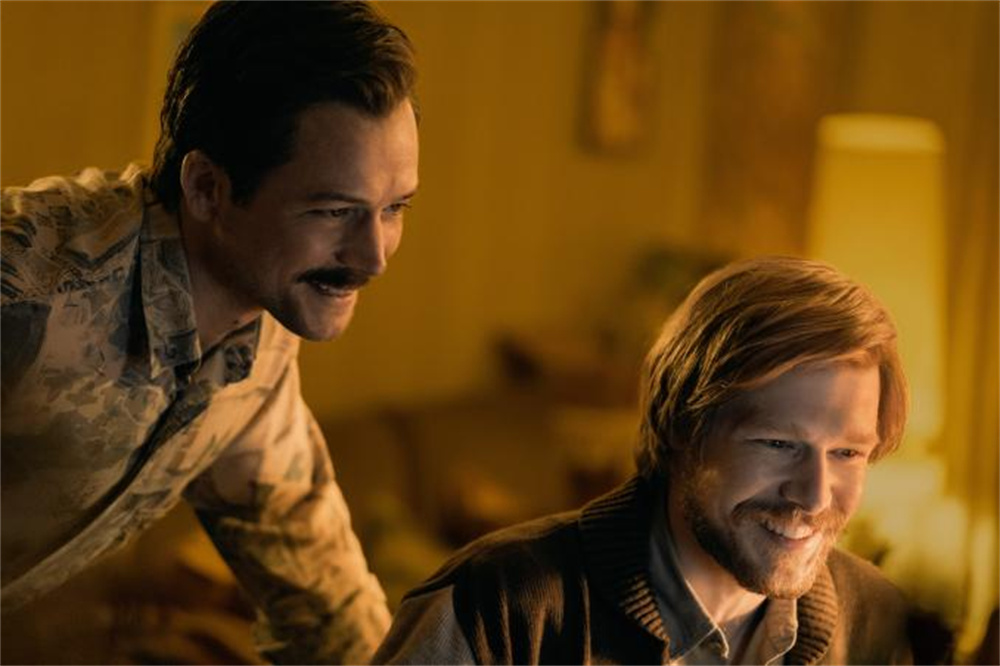
Enthusiastic businessman and game developer Alexei, two young people forget the differences of countries and cultures because of their love for the same game.
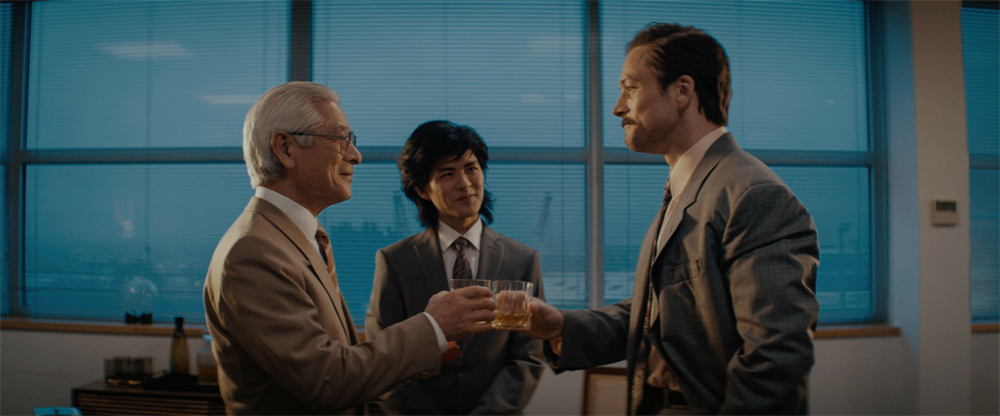
The cooperation between the businessman and the president of Nintendo has unlimited possibilities.

A GB handheld under development looks simple, but with the addition of "Mario Brothers" and other games inside, it is like opening a window to a new world.
In order to obtain part of the agency rights of the "Tetris" arcade machine, the protagonist of this film began to deal with the father and son of the British Mirror Software. A typical "black-hearted dealer". The protagonist finds out that Mirror Software has not obtained all the distribution authorizations for the game, so he simply bypasses the middleman and decides to go to Russia to negotiate a deal with the game creator.
The scene of the film has reached here, and the direction has been roughly clarified. "An American businessman is in Moscow", the language barrier, the huge cultural difference, and the different political systems of the two countries will inevitably make it difficult to move forward. Although successful businessmen in reality are often criticized by the public as "no business, no fraud", it is shown on the screen that in addition to pursuing wealth and improving personal life, their business also represents a positive cultural exchange. , breaking the shackles and breaking the traditional rules, and promoting some values and ideals of human freedom and equality at a deeper level.
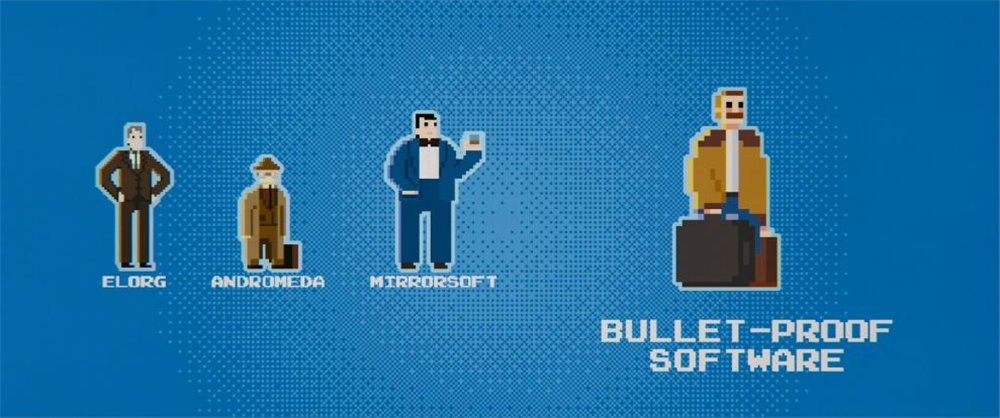
There are some animation elements with 16bit design in the film, which are used to divide paragraphs and increase interest, and also reflect the game theme of the story.
With a passion, the protagonist walked straight into the gate of ELORG and began to discuss business with the officials. ELORG is translated as "All Union Electronic Equipment Federation" in the movie. In reality, it is the department responsible for the export of computer software and hardware of the Soviet Ministry of Foreign Trade. The creator of "Tetris", Alexei, originally worked in the "Computing Center of the Academy of Sciences of the USSR", and was assisted by two colleagues. At that time, he had nothing to do with ELORG. The film has done obvious simplification and merging here.
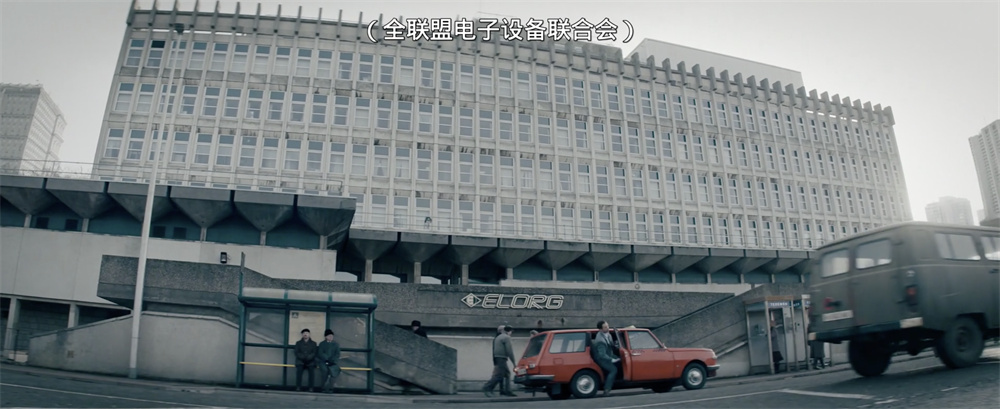
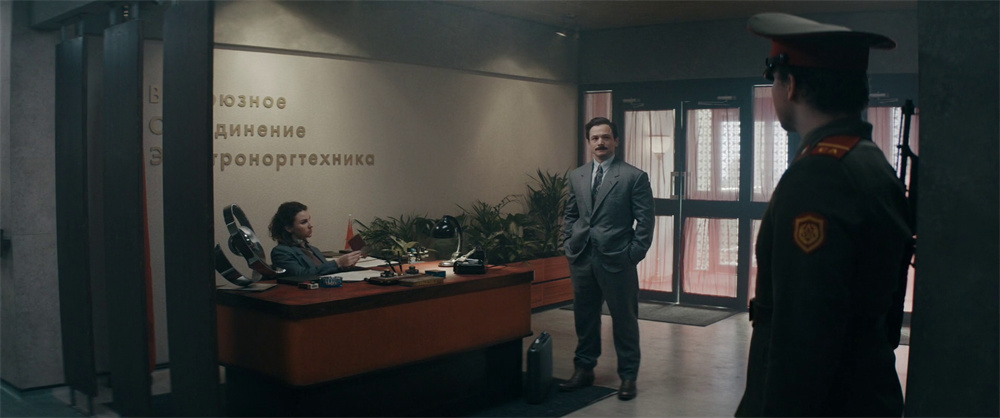
For the Soviet Union, the intellectual property rights of programs created by programmers belonged to the government—this is roughly equivalent to today’s programmers in major Internet companies changing jobs, and the results of their labor have to stay in the company and cannot be taken away. In real historical events, this copyright was determined by the Soviet court and belonged to the Computing Center of the Academy of Sciences of the USSR. Judging from the plot of the film, although the creator of "Tetris" is very clear, the part of the business negotiation must be carried out by his superiors.
Although the Soviets in the film have relatively closed communication with the world business system, they are not fools after all. Not only the protagonist, but also businessmen from the British Mirror Group and former agents also appeared, and several companies were secretly competing. Soviet officials began to negotiate separately with each company, taking advantage of the poor information, and finally understood the loopholes in the contract they had signed before, and also knew that the future agency rights were valuable. In the intriguing business society, Soviet officials also hope to sell "national assets" at the highest price. Future business cooperation seems possible.
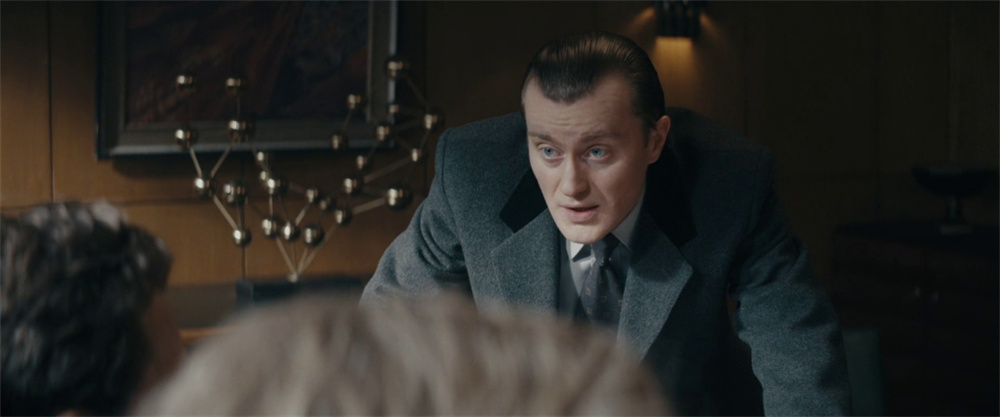
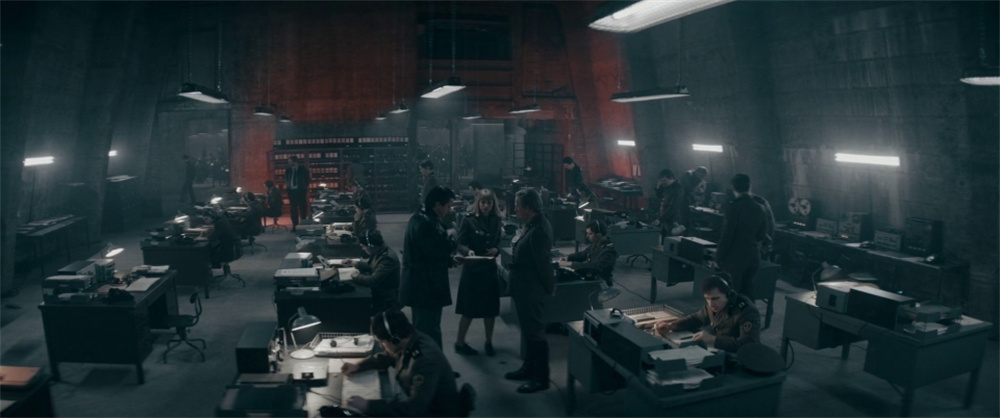
The Soviet KGB officers in the film, as well as the spy agency monitoring, have a cold and scary feeling. Of course, this is an obviously graphical bad guy setting, which is not the case in reality.
In the following episodes, the protagonist gained mutual trust through direct communication with the programmer Alex, and even won the favor of the programmer's superiors because of his sincerity, and seized the opportunity in the negotiation. However, the KGB leader, the secret service agency of the Soviet Union, suddenly intervened in the middle, hoping to benefit himself from the transaction and allow the Mirror Group to obtain authorization at a much lower price, so he obstructed normal business communication in every possible way.
This incident even got to the Soviet leader Mikhail Gorbachev in the end. At the time of the grand military parade on Red Square, the minions of the KGB staged a street car chase in order to hunt down the protagonist who had won the contract. In the end, the bad guys failed collectively, and the protagonist, the honest and trustworthy businessmen, finally got the "golden axe".
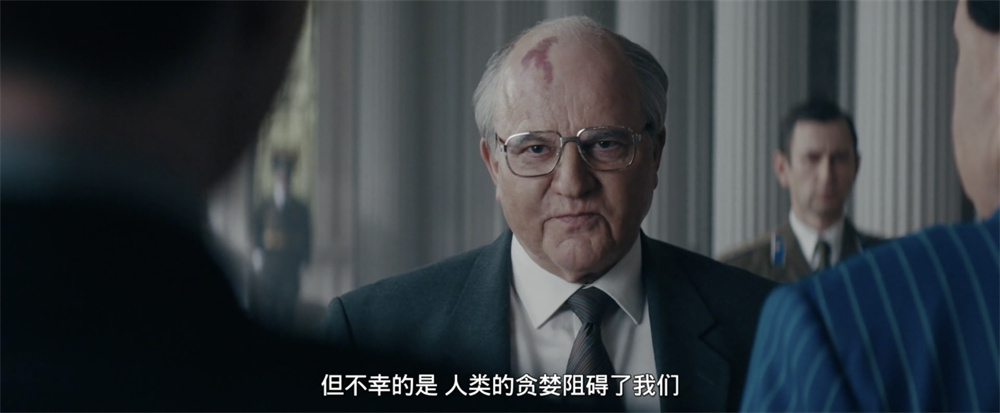
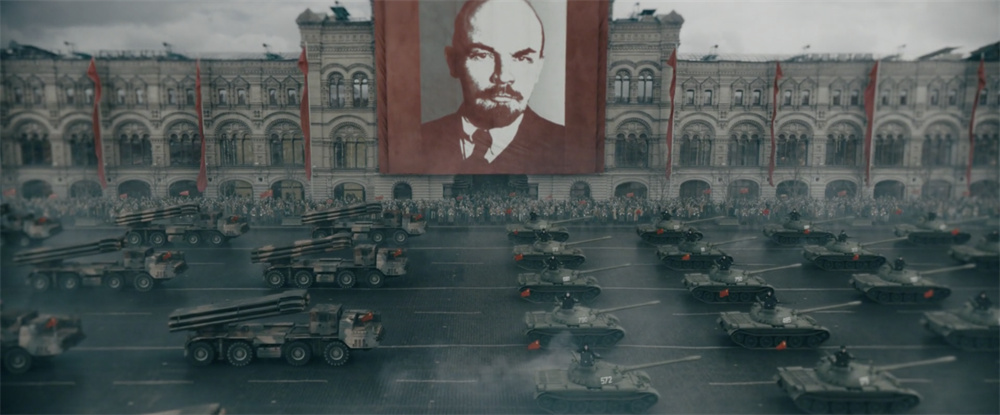
There is also a picture of Soviet leader Mikhail Gorbachev's military parade on Red Square in the film. It's nothing more than to increase momentum. Just don't take it seriously. It was originally a game-like movie.
In the subsequent episodes, based on the starting point of popular stories, the performance of several Soviet officials and the difficulties and pressures caused to the protagonist have become more and more dramatic. Perhaps for viewers with limited social experience, there will be ubiquitous monitoring and exploitation of ordinary citizens in a highly centralized society. But compared to American audiences, for those of us who know the Russian political system better, I am afraid that the conflict in reality will not be as intense as the film - most of the plots can still be clearly fabricated, and the Soviet Union is deliberately regarded as the film. the bad guys in. In that society, the greatest pressure for business negotiations may not come from personal threats, but from government agencies with limited information and slow actions, the heavy commercial barriers deliberately set up out of protectionist considerations, and the refusal to perform after signing the contract. The business risk of losing a lawsuit. In short, it is much more complicated than the plot of the movie.
In the movie, it all works out as the protagonist and the Nintendo team walk away with the contract. The good wishes of human beings to open up, cooperate and communicate finally contributed to the big sale of the game "Tetris" all over the world.
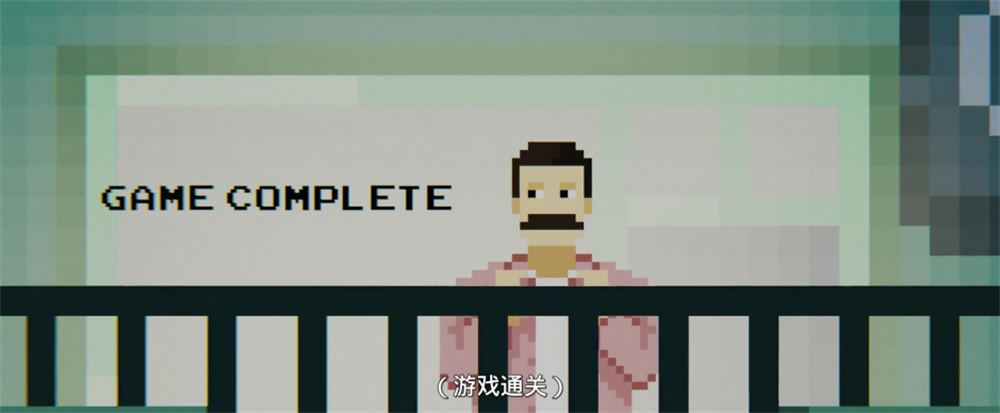
Of course, in reality, due to the complicated attribution of copyright, Nintendo’s competitor Atari has actually developed and promoted “Tetris” in the arcade field, and has also developed it on other host platforms, but later because of Lost in court with no real copyright. Other companies followed suit, a process that continued for several years.
After the disintegration of the Soviet Union, Alexei, the creator of "Tetris", moved to the United States in 1991 and established the "Tetris Company" in 1996. Later, ELORG in the Soviet Union was transformed into a private enterprise, and it also owned part of the copyright of "Tetris", until this company was also completely acquired by the "Tetris Company" in the United States.
So the current "Tetris" is actually a complete "Made in America" game.
The shooting and production of this film is not complicated, and it is basically an industrial product on the assembly line. However, for this rather interesting historical event, it still made a relatively clear and brief adaptation, and also highlighted the images of several main characters who "distinguish between good and evil", which is a fairly popular work as a whole. Through this film, the audience can also understand that the transaction and ownership of game copyrights used to be a very complicated cultural issue, and it was not until later that there was a clearer legal definition. An environment of openness, equality and communication will always help human beings to communicate and develop with each other and create a better future together, instead of continuing to be closed.


